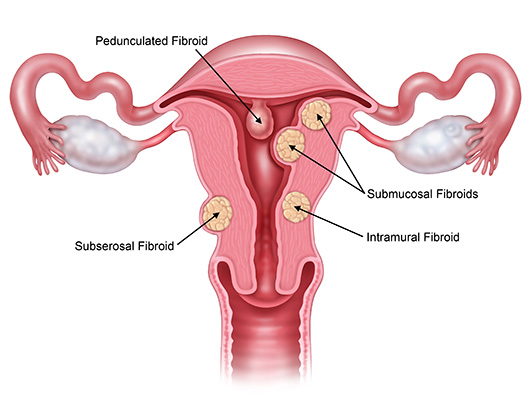
Uterine fibroids are noncancerous growth of the uterus that frequently appears through the childbearing years. Many women often do not have any associated symptoms. In those that do, symptoms are influenced by the location, size and number of fibroids. In women who present symptoms, the most common symptoms of uterine fibroids include:

Chronic pelvic a pain is pain in the area below the umbilicus region that lasts for a period of six months or longer.
Usually, chronic pelvic pain is described in one or more of the following ways